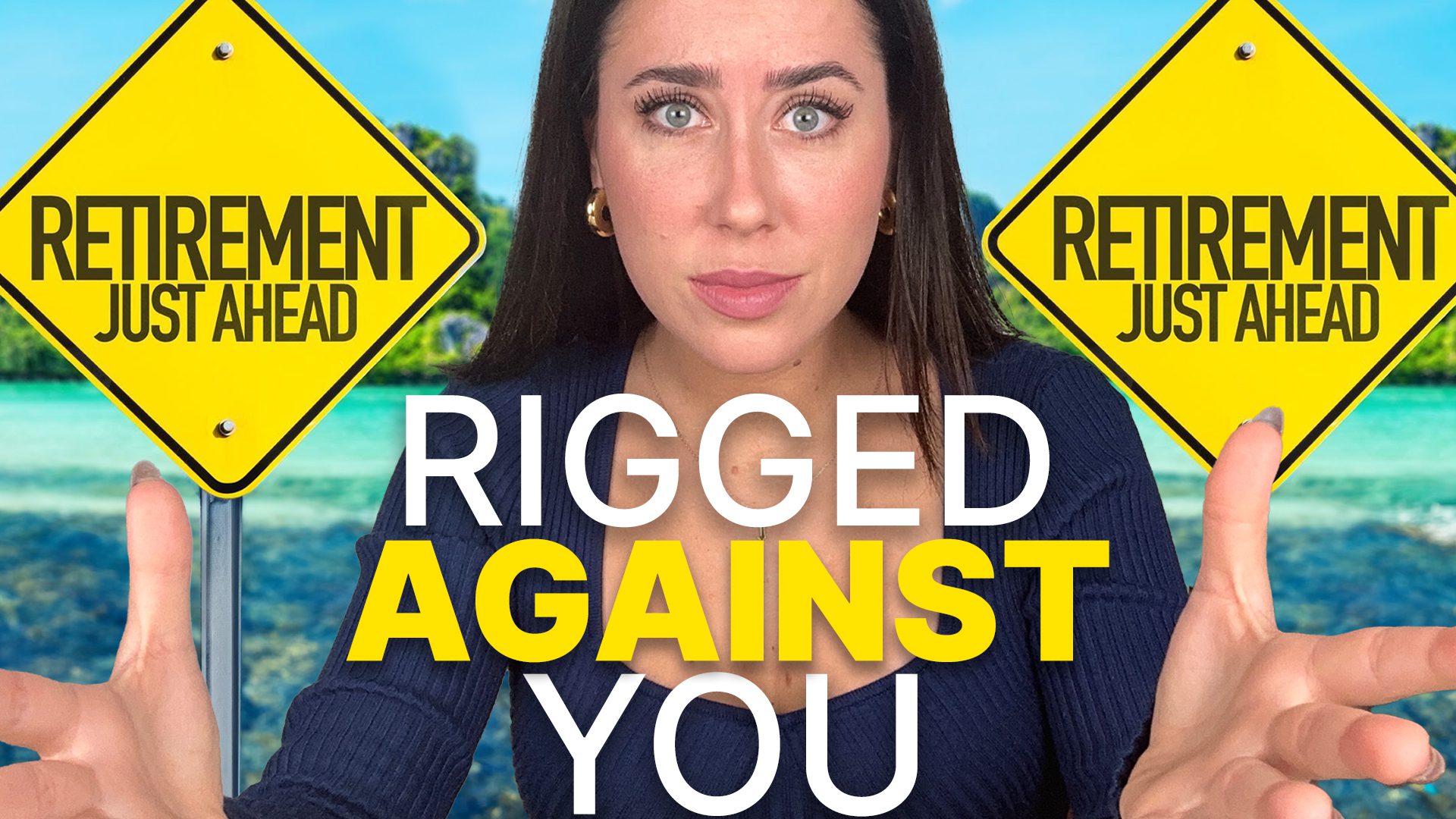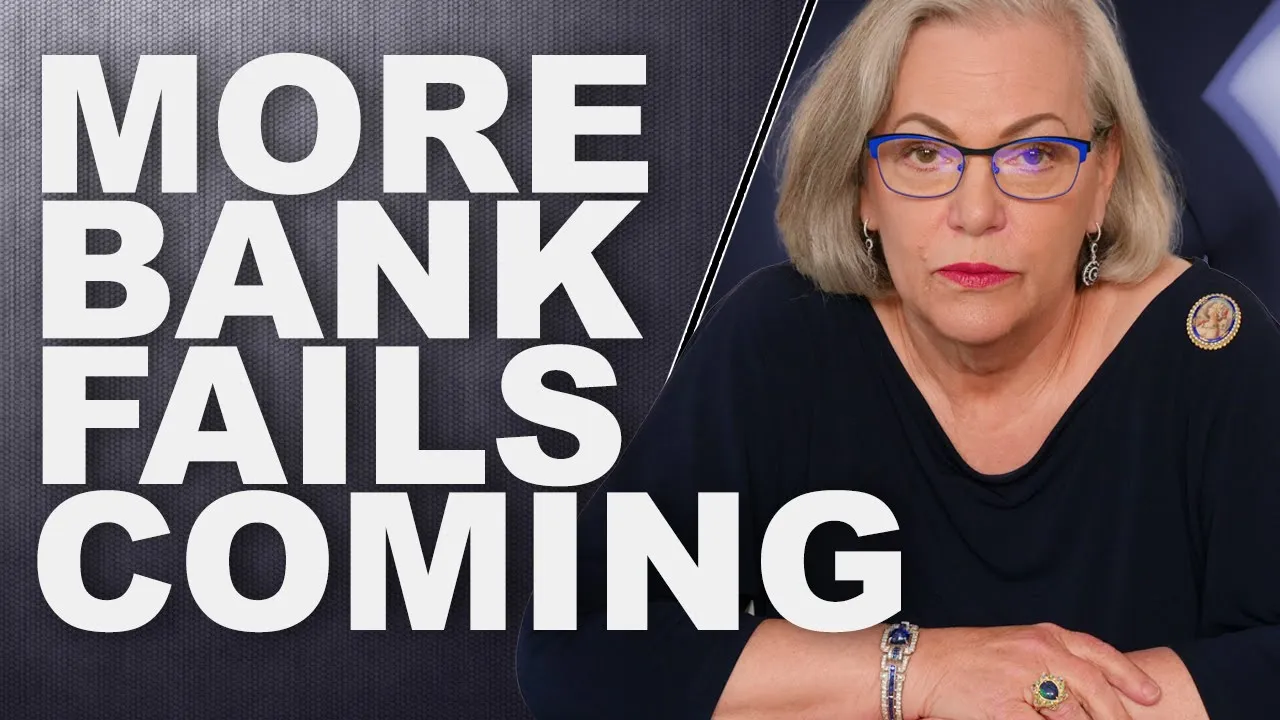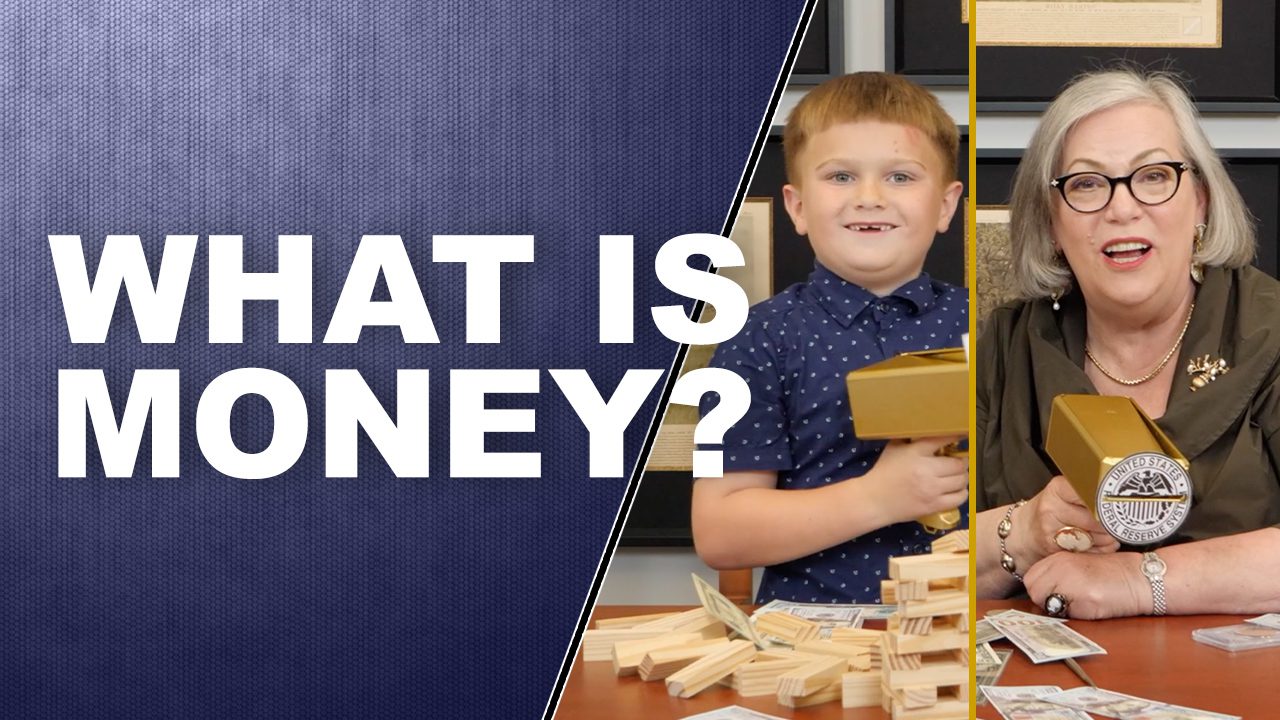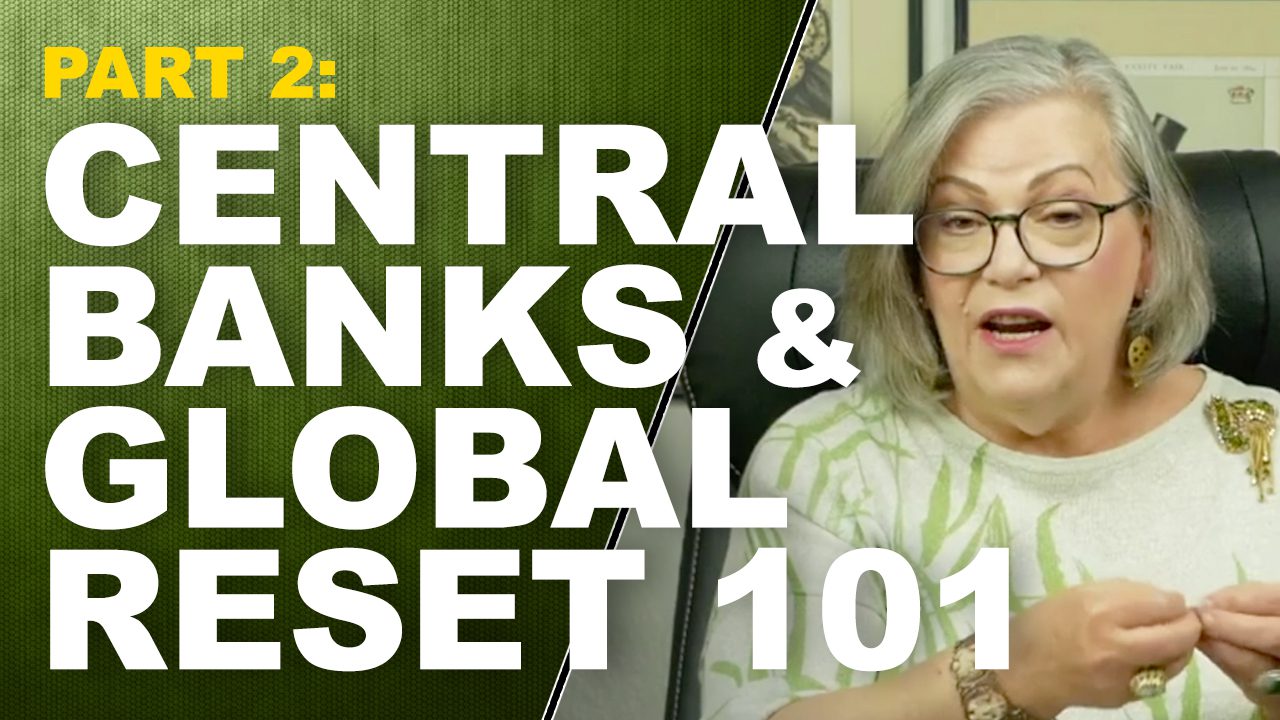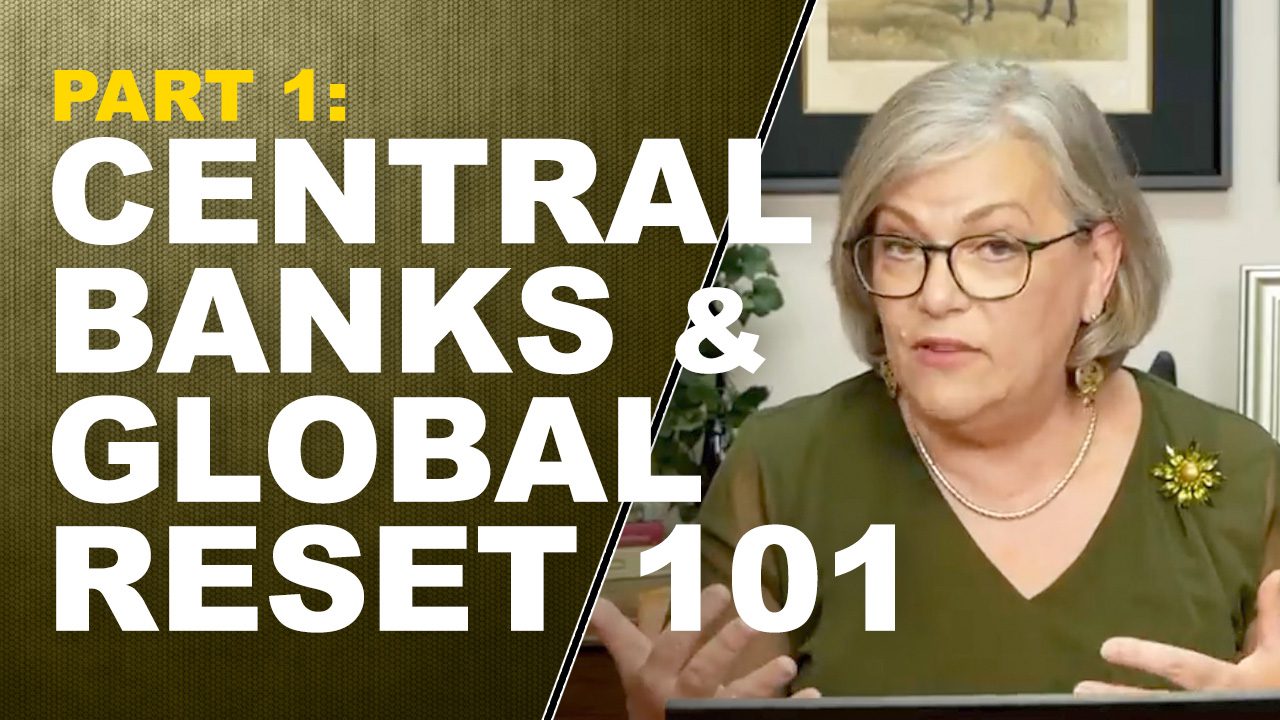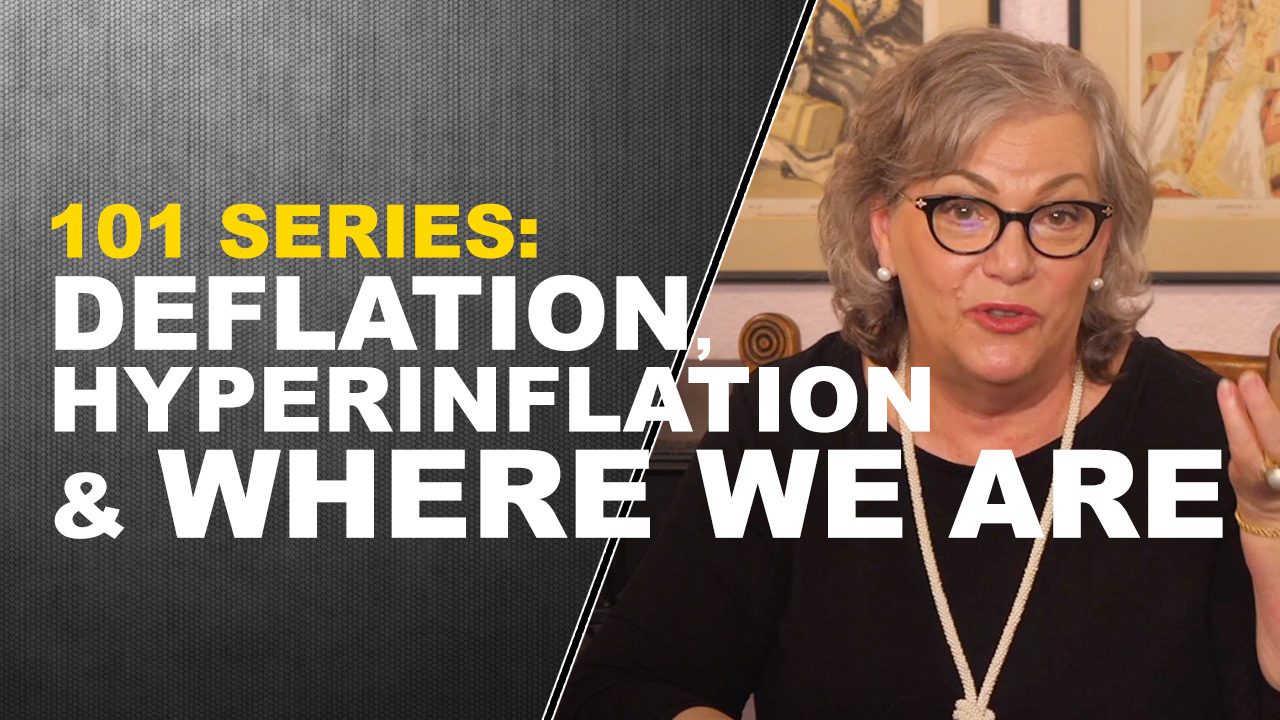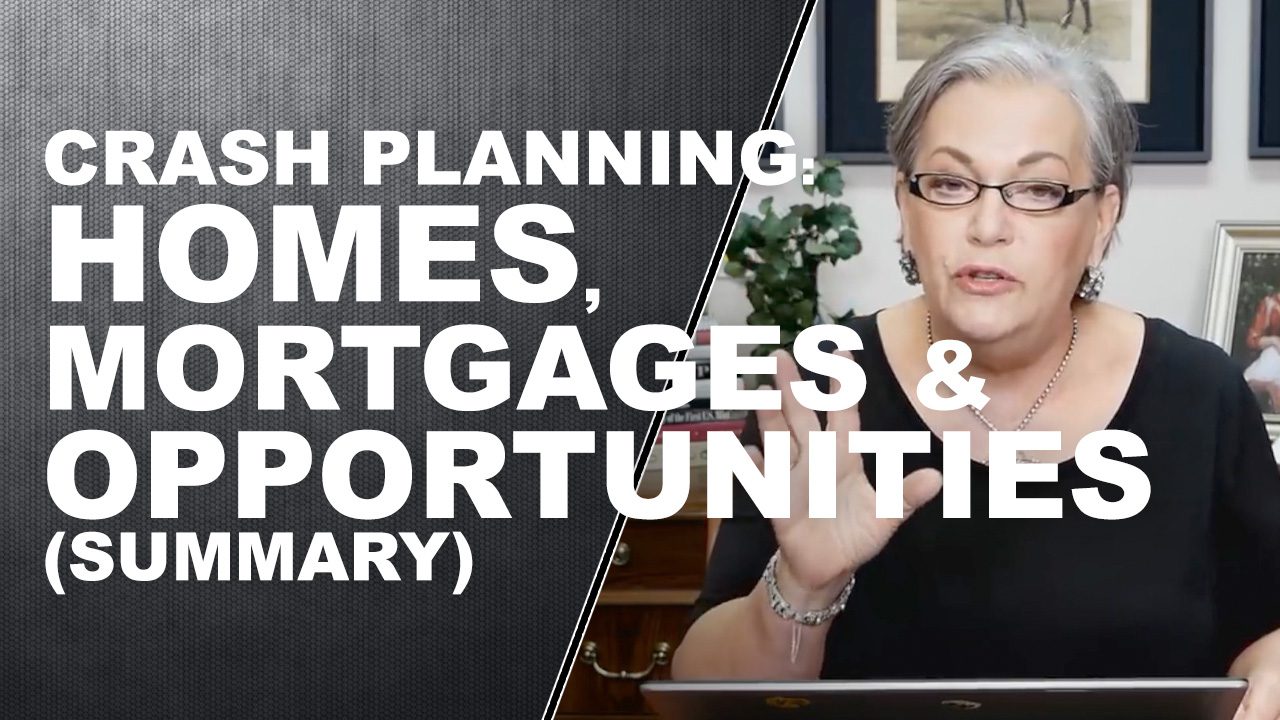Housing Bubble Pop: It’s Happening & We’ve Been Warning You [Summary]
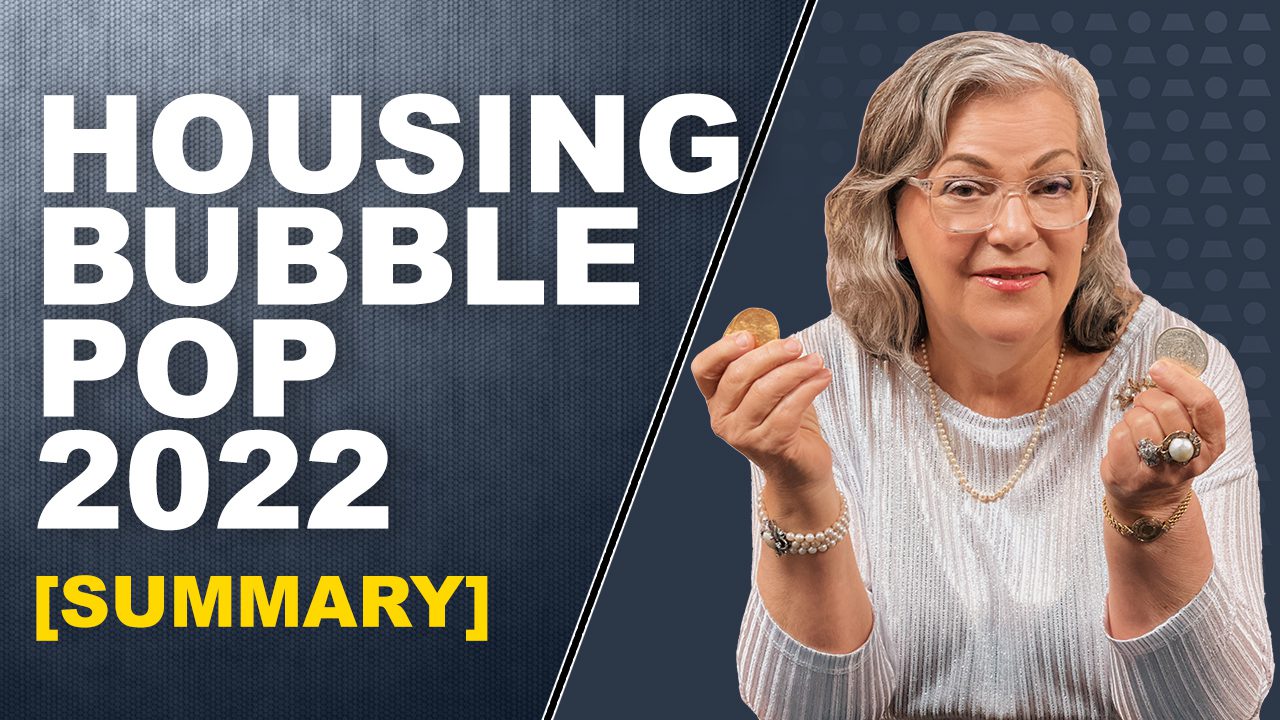
TRANSCRIPT FROM VIDEO:
I’m Lynette Zang, Chief Market Analyst here at ITM Trading, a full service, physical gold and silver dealer. Now, considering that real estate is roughly 30% of the global economy, and they’ve worked real hard, those global central bankers to reflate that bubble after it popped in 2008. Interesting that they would talk now about a housing bubble, but let’s take a look and see what they’re saying.
They’re raising rates to combat the inflation that they created to destroy demand. I mean, inflation is a lot of money chasing too few goods. And with the central banks, it’s pretty darn obvious, we know how much money they’ve just been creating and creating and creating. So here is that report from the Federal Reserve Bank of Dallas real-time market monitoring, find signs of brewing US housing bubble. You know, one of the things that I always love is how they never, ever, ever accept responsibility for the manipulations. And then the subsequent unintended consequences that come from that. But they say our evidence points to abnormal US housing market behavior for the first time. Oh my God. Since the boom of the early 2000s, which they created as well as this housing market bursts, this bubble bursts you or real estate, not just housing real estate, you wanna be in a position to take advantage of it. Like the wealthy have 2008. There was a massive transfer of wealth in real estate from the individuals to the corporations. Well, corporations are doing all of this on debt and the debt bubble has already popped. Now it’s, they’re trying to moderate how that whole thing is imploding, but the big long debt boom is over. Cause you know, we’ve been anchored at zero since 2008,
No one ever really talks about the most disadvantaged people when it comes to housing. Mm-Hmm, <affirmative>, it’s kind of like one of those things that everybody likes to say, oh, we’re doing all these great things, but it’s like a lot of people are collecting a lot of money and doing nothing with it, but you know, like they love to like put it on their billboards and everything. And there’s a lot of predatory lending practices when it comes to affordable housing options. And it seems that the poor are the most, gone after the, the most predatory lending practice happening to them. But it’s mostly because they’re not told that there is another way, you know, they, they’re not told that you can get a loan somewhere else. You don’t have to get it at the, let’s just say the manufactured home park, you can go to your local bank and you can probably get a, a much better rate. Um they’re not told about loan terms. They think they have to have two separate loans and it gets them in a situation that could cost them a lot of money and interest. So I like having to expose those kinds of things where people are like, wow, you saved me so much money. And it all started because of one guy and he had a piece of land that he was trying to sell with a manufactured home, two different loans. And we pulled out his paperwork and he was paying 17.99% on a manufactured home. And I, I asked him, I’m like, what is your credit score? He’s like, oh, it’s way over 700. I’m like, this is disgusting. This is disgusting. And no one told him any differently. And, and he just took the guy at the, you know, at the place, his word that this was the best he could do. And that was dis gross to me. So for the past two and a half years, I’ve been like sounding the alarm that there are investment firms that were buying up large pieces of the south. I started noticing it in Austin, Texas way before the pandemic. And I had mentioned it to another real estate and on the live stream, I’m like, have you noticed that like all your foreclosures are being bought up for $1 more than what the highest bid was by one specific firm? And he’s like, no, not at all. So I showed him that I’m like, you have a lot of foreclosures that are being bought up by investment firms. He’s like, oh, interesting. And then sure enough, as I started like digging into other markets, I noticed that a lot of these private equity firms were buying up these houses, these foreclosures, then the pandemic starts. Then all of a sudden you started seeing the, the most affordable homes in the hottest markets were being scooped up very quickly by Zillow, by open door, by Blackstone under there’s invitation homes is another one mm-hmm <affirmative> yeah. I Invitation homes I think was BlackRock. Well, they, they were all, they were partially started by Blackstone. They pulled out, I believe in 2017 mm-hmm <affirmative> they had scooped up a bunch of homes with invitation homes after the last housing crash, 2008. That’s when that started. So I started talking about that then.
So yes, please continue. Yeah.
And then they pulled back and they said, okay, well, we’re gonna start with another company. So they pulled from, from invitation homes and then they went in and learned all their lessons they needed to and started with Tricon, which is a Canadian company Tricon is going through, do with exact same thing. It’s just a rubber stamp of themselves. And if you look at Blackstone and black rock, they’re really just the same company with a different, like slightly different name. They’re doing the same exact kind of thing. And my whole, my whole mindset from the moment I started seeing all this stuff is like, they are trying to turn people into permanent renters. They do not want people to own their own homes anymore. And then if you started looking at these build to rent communities yep. The narrative of people like, oh, it’s just gonna be so hard for people to maintain these homes. You don’t have to worry about anything. Once you, once you’re done living in area, you can just pick up and move somewhere else. You don’t have to worry about the hassle of selling a house. They like are glorifying. What’s not owning should be like, you know, like you don’t want this, you know, you just rent your life and it’s gross. You know, it’s actually very disgusting. And I think that’s what they’re trying to do is just beat these kids down where they know that they could never afford a house because that’s, those prices have gone up exponentially, right? From speculation. They’ve increased the rent much. They have no choice. They have no choice. They have to pay it. And so like, where are they gonna go? So they know that they have them in Austin, Texas alone. They increase the rent. 35% in Atlanta, Georgia increased 30%. So I mean, they know what they’re doing. They know how much the market can handle. They’re just trying to squeeze it for as long as they can, before it starts taking again. And they’ll just hold onto more properties. That’s not gonna, the, the market for them is not going to disappear. Cause they know they got people. They know they got people and they, and they’ve been doing this for the last recession and they held all absolutely all those foreclosed properties just to do this, to fix ’em up and rent ’em out
Out of all of this new debt mortgages drive the increase in US household debt to nearly 16 trillion. But the numbers that came in on housing on housing sales and existing homes were down. I think they said 17% year over year, maybe the housing bubble has popped. We’re gonna find out as time moves forward, but it’s a lot more expensive. And when interest rates go up, well, the house prices were justified to go up because the interest was so low. So you could maintain the payment, even though you’re paying more for the house. Many people said that that didn’t matter. Well, it matters now because there’s a whole lot that’s happened with that home equity, but US households added 266 billion to their debt balances in the first quarter of 2022 led by mortgage loans. In the largest single quarter increase since what year is that? 2006, what happened in 2007, everything started to unravel and that very well could be what’s happening right now. This is according to the New York Fed. This is the total debt balance. Actually I’m, I’m pretty sure it’s higher than this, but this is the data. And I say that because when I looked at the mortgage inside of the Fred in 2000 and was it the third quarter of 2021 or the fourth quarter of 2019? I can’t remember. It was like one of those. They stopped reporting mortgage debt. And it was almost at 16 trillion at that point. So, but they don’t report it anymore. But here the New York Fed showed the mortgage balances certainly higher than they were in 2008. That’s the mortgage debt. That’s the non-housing debt. So other credit cards and revolving credit. And you know, it’s a lot higher today than it was in 2008 during the financial crisis. So totally we’re looking, it was the total debt was at what? 12.4 trillion. Now it’s at 16 trillion. Can the consumers handle this? Yes, they’re getting paid a little bit more, but the cost of living is increasing far, far faster. And the real question is, what happens if the real estate prices go down because there was a lot of home equity lines of credit that were taken out against these inflated prices. Do you remember 2008, 2009, 2007? That people spent as much as they could. They pulled as much as they could out of the equity of their homes. And then all of a sudden, when the market went down, they were underwater in what they loaned or what they had borrowed. So we can’t forget the lessons that we got from the great financial crisis because frankly that’s when the system really did die and it’s just been on money, printing, life support. And what do you think is gonna happen even further when interest rates rise? What we’re seeing in the data out of the US housing market today. And Hey, I don’t know that that housing real estate bubble here in the US is over, but you look at Canada, our neighbor, one of the world’s frothiest housing markets turned into a seller’s headache, overnight house hunters from Toronto to small Ontario suburbs are changing how they navigate the tight housing landscape. One of the world’s bubbliest housing markets is tilting from sellers to buyers with dizzying speed. And that was kind of what they were indicating when I was listening to CNBC this morning on the US real estate market.
Then house prices rising faster than even the rising rents. Okay. What you’ve been looking at is even though the housing market is cooling off, the prices still were over 20% year over year on average. And in some places like Tampa bay and Florida, over 35% increase in house prices. Now you gotta have shelter. That’s part of the mantra. You’ve gotta have a place to live and maybe a place to make your last stand. But you know, year over year 20 and 30% increase, price increases. Yeah. What goes up must come down. That’s not happening yet, but I don’t think we’re that far away from it.
Because we’re now in a rising interest rate environment, at least for the time being, I don’t think that’s really gonna hold true very long. And we’ll see, you know, maybe through the rest of this year, maybe not. It depends on how scary it gets out there for the fed gets, gets scary enough markets implode enough. The prices on housing really start to go down in a very dramatic way, where now you have all of these people that are underwater because the current market value of their homes went down where the commercial real estate went down. We’re in deep doo-doo and this is going to be, I think the next crisis is very close. I don’t think it’s tomorrow, but who knows? Right? Timing is the biggest challenge of any technician.
Do yourself a favor. You gotta have a plan. The behavior that we’re seeing with this housing market suggest that a bubble might be brewing and that it will eventually pop. If you don’t have a plan you’re really planning to fail. This is not going away. It’s going to get worse.
SOURCES:
June 2, 2022
US & Global Economic Risk On The Rise [PT. 2] Fed’s Financial Stability Report May 2022
https://youtu.be/3rD1KiT_cCc
May 31, 2022
When Is The Whole System Going To Crash [PT. 1] Fed’s Financial Stability Report May 2022
https://youtu.be/KOW6qVBv2B0
May 24, 2022
CONSUMER & THE FED: Friend or Foe?…HEADLINE NEWS with Lynette Zang
https://youtu.be/AmquVwhEqD8
May 16, 2022
[PT.1] The Middle-Class Will Be Priced Out of The Housing Market | Kristina Smallhorn & Lynette Zang
https://youtu.be/wS66C8zyUM4
April 14, 2022
Fed Warns of Housing Bubble…by LYNETTE ZANG
https://youtu.be/tUWy6_JLXj8
